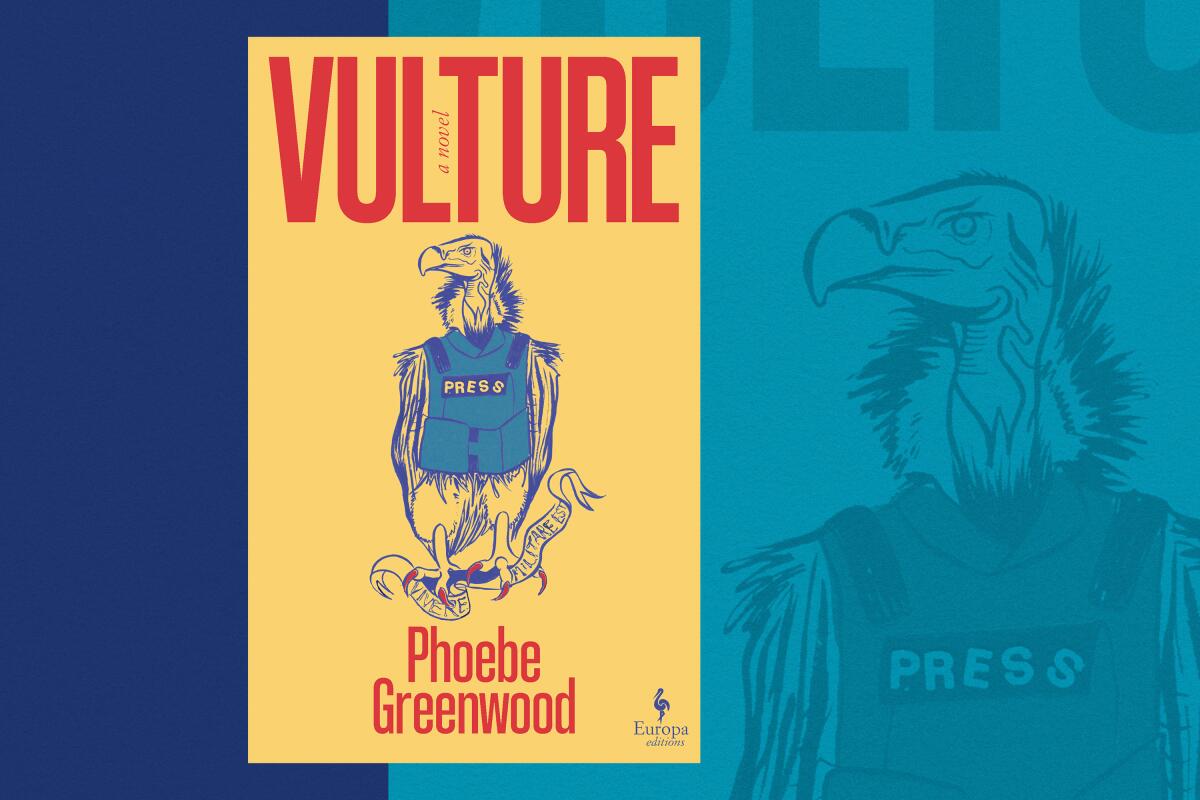UPDATE: British journalist Phoebe Greenwood’s debut novel, ‘Vulture’, is making waves with its biting satire on war journalism amidst the chaos of the 2012 Gaza War. The book dives deep into the morally ambiguous world of reporting, spotlighting the unsettling experiences of a young journalist, Sara Byrne, who is more focused on personal ambition than on the human cost of conflict.
Just released, ‘Vulture’ paints a stark picture of a 33-year-old aspiring reporter dispatched by the fictional London Tribune to cover the devastating war. Set against the backdrop of Gaza, Sara’s quest for a career-making scoop leads her to a luxurious foreign correspondent’s hub known as the Beach Hotel, a stark contrast to the grim realities unfolding outside its walls.
The novel’s narrative is both gripping and unsettling, as Sara navigates her privileged surroundings while remaining emotionally detached from the tragedy around her. With disinterest in the stories of grieving victims, she expresses frustration over the monotony of reporting on death and destruction, stating, “sad Mohammeds talking about their dead kids” bore her. This chilling disregard for human suffering highlights a disturbing trend in modern journalism.
Sara’s journey intensifies when she seeks a more sensational story, leading her to a fixer named Nasser and eventually, to a riskier connection with Fadi. The promise of exclusive access to Hamas’ underground tunnels drives Sara into a reckless pursuit, culminating in a tragic bombing at the Beach’s restaurant. This pivotal moment forces her to confront the brutal consequences of her ambition, leaving her entangled in the aftermath of chaos and loss.
Greenwood’s vivid prose immerses readers in the tumult of war, with graphic depictions that evoke both horror and reflection. She captures Sara’s internal struggle through flashbacks that reveal her complicated relationships and deep-seated guilt, particularly surrounding her late father, a renowned foreign affairs writer. This emotional weight adds layers to a narrative that critiques the moral implications of “monkey journalism” – a term Sara uses to describe her quest for sensationalism over meaningful storytelling.
As the story unfolds, the presence of a mysterious bird serves as a haunting metaphor for the toll of war and the psychological impact on those who report it. Sara’s hallucinations and deteriorating health reflect the mental scars left by her experiences, suggesting that the line between observer and participant in conflict can blur perilously.
Why This Matters: ‘Vulture’ resonates with current discussions about the ethics of journalism, particularly in war zones. With its release, Greenwood presents a timely critique of the industry, challenging readers to consider the human cost of reporting and the responsibilities of those who seek to document suffering.
The book’s provocative themes and emotional depth are sure to spark conversations about the role of journalists in conflict zones and the potential consequences of prioritizing sensational stories over human dignity. As the owner of the Beach aptly states, “War may be hell but it’s one hell of an employer.”
Readers are encouraged to engage with this thought-provoking narrative that urges a reevaluation of journalistic integrity in an age where the line between reporting and exploitation is increasingly blurred. ‘Vulture’ is available now, promising to be a powerful addition to the discourse surrounding war reporting.
